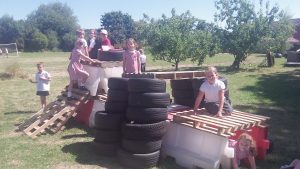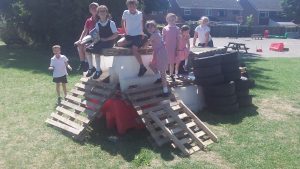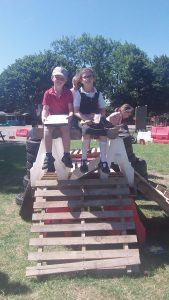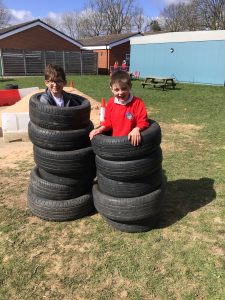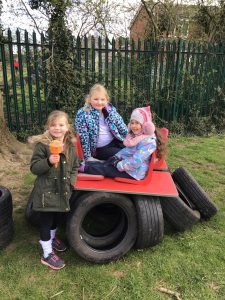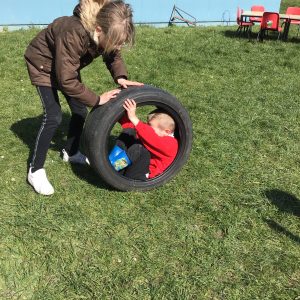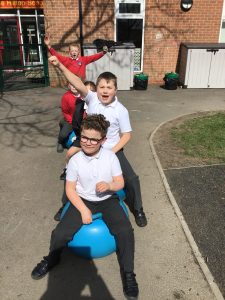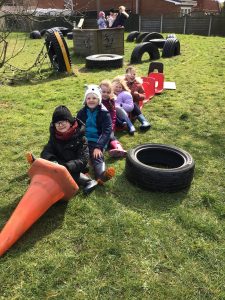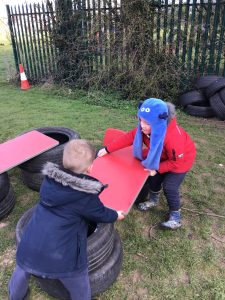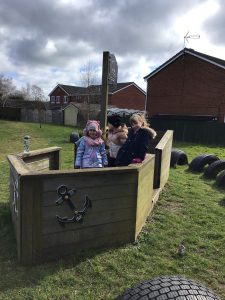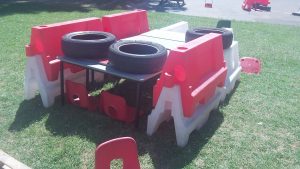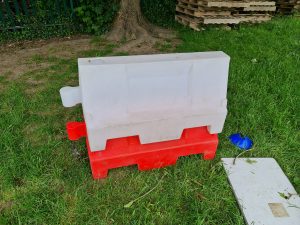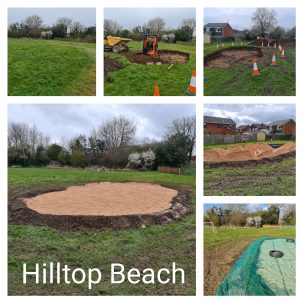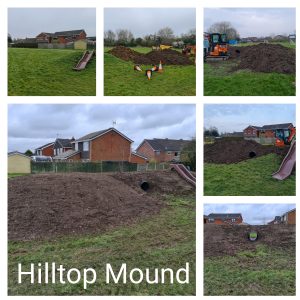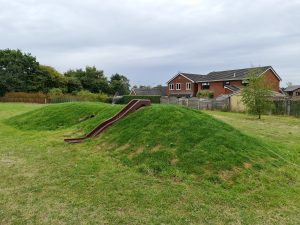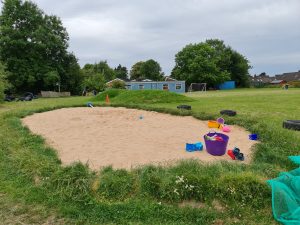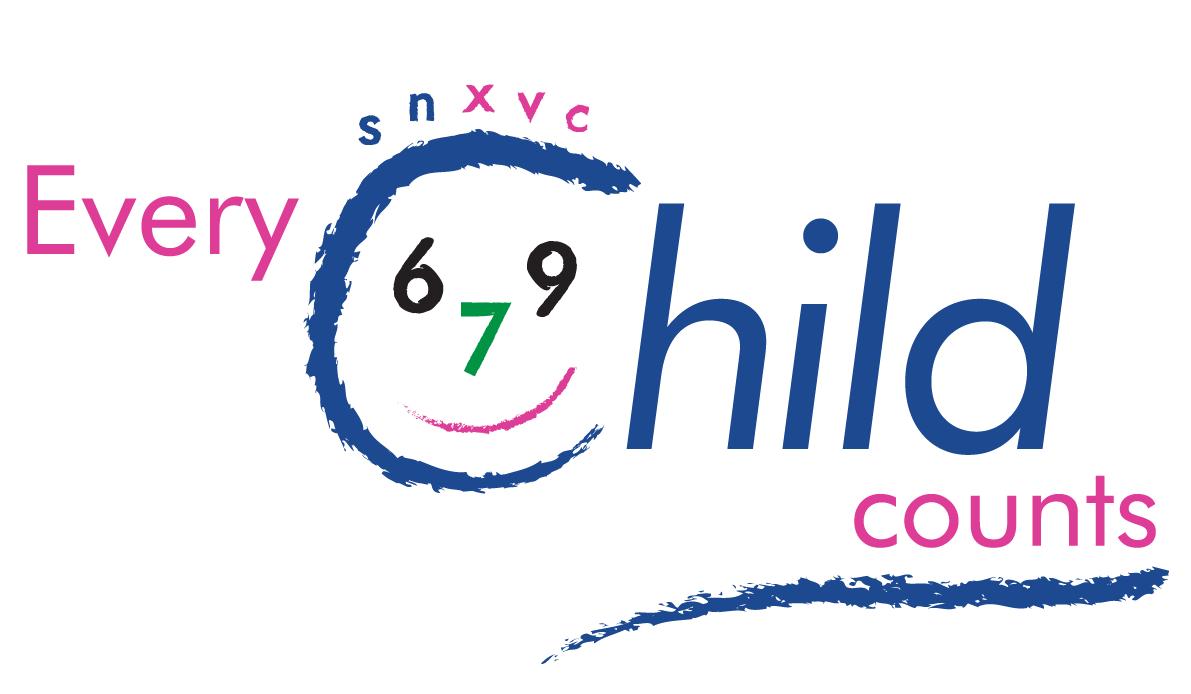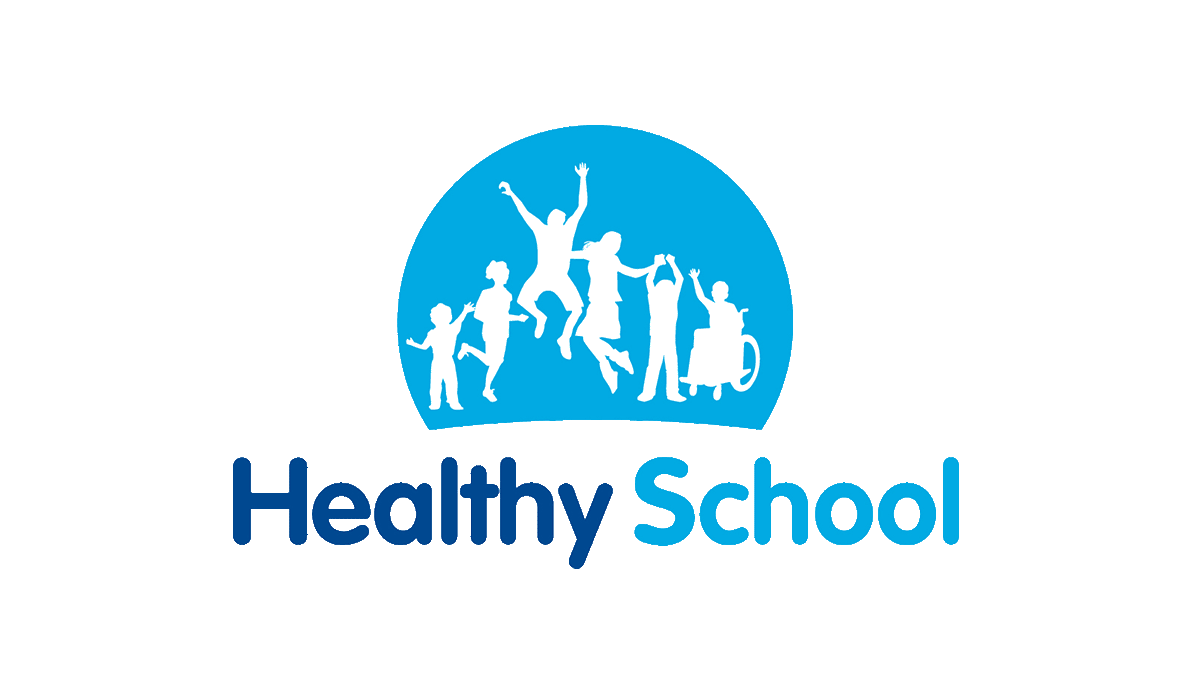OPAL Playtimes
Playtimes at Hilltop are a little bit different! In early 2022 we started to work with the not-for-profit, OPAL (Outdoor Play and Learning), to improve playtimes for all pupils. We are looking at play as a subject in itself, planning for play in very much the same way we would look at geography or history. We have a play coordinator (Mr Greatorex) and and Play Leader (Mrs Webster), as well as a play team consisting of our mid-day supervisors.
The OPAL ethos is that playtimes should be active, creative and involve activities that are freely chosen and directed by the child. It encourages the use of ‘loose parts’ in playtimes: open-ended materials that children can move and use in many different ways, such as boxes, crates, sheets, pipes, log rounds, buckets, blocks and rocks.
We allow children to make full use of our site — including our large field and Hilltop beach! — in all seasons and weathers, provided they have the right footwear. This means they will need to be wearing wellies to play on the field/grass areas (except in the drier months) so children will need a pair of wellies in school at all times. To ensure equal access to play, we do have a ‘welly library’, which children can borrow wellies from.
You can view our Play Policy here.
How we are improving playtimes
We are be working with OPAL and their play experts to improve our playtimes gradually over the next 18 months, with the aim of achieving OPAL’s Platinum Award in Play by the summer of 2023.
We have already made the following improvements:
- Created a giant sandpit (‘Hilltop Beach’) on the field with 40 tonnes of sand
- Made the existing mound on our field bigger, with a tunnel through the middle
- Added loose parts for play, such as tyres, table tops, chairs, cardboard boxes, soft toys and pallets
- We now have a stage and music, as well as costumes and a mud kitchen
- Set up a welly storage area and welly library
- We designate play detectives who film and photograph interested and creative play ideas to share on our weekly play assemblies
Over the next few months we will be adding:
- A digging pit
- Barrels
- More loose parts such as guttering and lengths of wood
Why is play so important?
During the last 2 years our pupils have lost out on lots of opportunities for play and cooperation. We have seen an increase in the number of pupils who are finding it difficult to form strong friendships, communicate their thoughts effectively and resolve conflicts when they arise. Through our OPAL play work we are beginning to significantly impact on these areas.
Incredibly, children in British primary schools spend 20% (the equivalent of 1.4 years) of their time at school in play, so it’s a really important part of the school day. Through their play, all children encounter, explore and make sense of the world and their place within it. Play can improve a child’s:
- health and wellbeing
- cognitive development
- social development
- understanding of risk and challenge
- resilience and character.
When they are really playing, children will use their entire body and exercise every part of their mind.
The OPAL programme rationale is that “…better, more active and creative playtimes can mean happier and healthier children. And having happier, healthier, more active children usually results in a more positive attitude to learning in school, with more effective classroom lessons, less staff time spent resolving unnecessary behavioural problems, fewer playtime accidents, happier staff and a healthier attitude to life.”
Risk-taking is an essential part of play
“When planning and providing play opportunities, the goal is not to eliminate risk, but to weigh up the risks and benefits. No child will learn about risk if they are wrapped in cotton wool.”
Health and Safety Executive, ‘Children’s Play and Leisure: Promoting a Balanced Approach‘
A key part of the OPAL approach is that all children need and benefit from risk and that it is the adult’s responsibility to balance the potential for harm against the potential for benefit. This is also a view supported by the Health and Safety Executive, as outlined in their document above. At Hilltop, we use this Health and Safety Executive guidance document to inform our approach to managing risk in play.
In summary, we manage the risks associated with play in the following ways:
- Written risk-benefit assessments for high-risk activities such as tree climbing or snowball fights
- Play assemblies — these are held regularly and include a section where we discuss with the children the risks associated with certain equipment and activities, and negotiate some rules around them
- Trained play supervisors, including TAs and midday supervisors
- Regular inspections and maintenance of play equipment
- Dynamic risk management — this involves our play supervisors making instant assessments about the risk potential of a specific play activity as it is occurring, and deciding whether they need to intervene or not.
What is OPAL?
OPAL is an award-winning, mentor supported school improvement programme that addresses all the areas that schools must plan for if they want to strategically and sustainably improve the quality of their play opportunities. OPAL is the only programme of its kind that has been independently proven to sustainably improve the quality of play in British primary schools.
